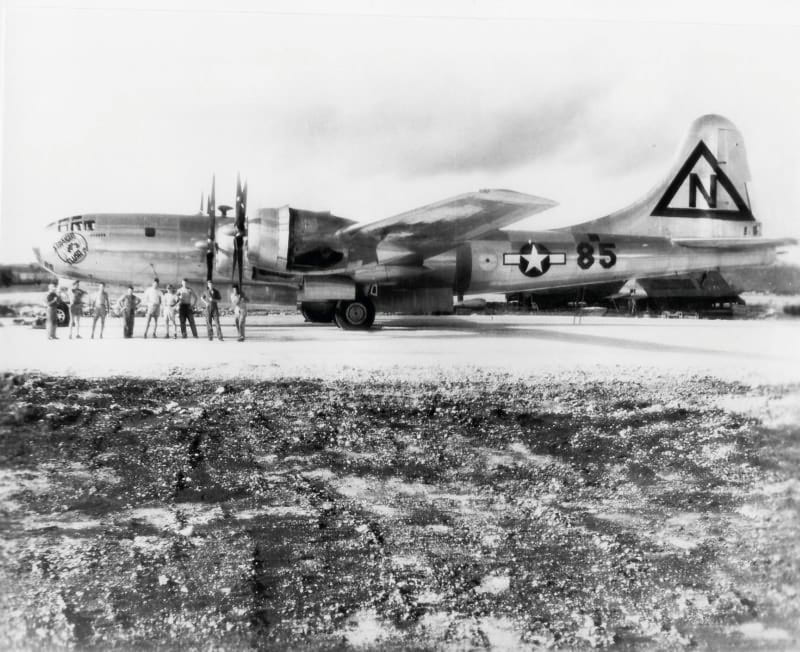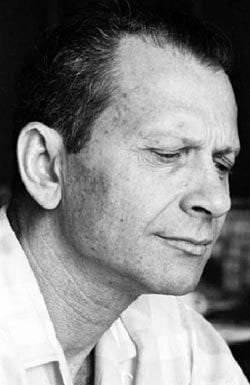by contributing editor Carolyn Taratko
In late May, President Obama laid a wreath at the Hiroshima Peace Memorial, making him the first sitting U.S. President to visit the city that was the target of the first atomic bomb on August 6th 1945. He called for the pursuit of “a future in which Hiroshima and Nagasaki are known not as the dawn of atomic warfare but as the start of our own moral awakening.” The mere suggestion of the President’s visit proved incendiary to many Americans, who argued that it would be seen as an apology for acts that official consensus holds ended the war and saved hundreds of thousands of lives in the process. Obama made no such apology, though. After expressing generalized remorse at the devastation, he used the occasion to call for non-proliferation, albeit on a timescale outside of his lifetime. It was a poignant moment of remembrance, but then there were other pressing issues to attend to. The survivors of Hiroshima and Nagasaki are, after all, the reminders of the immediate dangers of these weapons. At home, in the US, who feels this fear acutely and every day?
On June 3rd, 1959, an Austrian philosopher addressed a letter to a former US Air Force pilot from Texas. The Austrian, Günther Anders, initiated this correspondence after learning through the media that the American, Claude Eatherly, had once again been committed to the psychiatric ward of the V.A. Hospital in Waco. Eatherly had flown the mission to scout the weather above Japan before giving the ‘ok’ to drop the atom bomb on Hiroshima. After returning to civilian life, he was wracked by guilt over the consequences of his mission. Multiple suicide attempts and petty crimes ensued over the years that followed. Each time he was acquitted on psychiatric grounds. These offences and his outspoken insistence on his own guilt in partaking in the bombing mission left the Air Force and V.A. administration unsettled. Unwilling to risk another incident and wary of Eatherly’s growing media presence, he was to remain under medical supervision in the Waco hospital, at first voluntarily and then against his will. The Anders-Eatherly correspondence bears witness to this difficult time for the man who wanted to draw attention to the perils of nuclear warfare by making himself the first example.
It also bears witness to an attempt between two men of vastly different backgrounds to grapple with moral questions haunting the postwar world. In Anders’ first letter, he outlines his philosophical schema in which he sees Eatherly as an improbable hero. Anders dismissed the claims of Eatherly’s psychiatric disturbance and instead praised his vigorous moral health. He described the way that humans can become “guiltlessly guilty” as a result of the vast and complicated technology that humans have created (Letter 1). This condition is unprecedented; the imaginations of our forbearers outpaced their ability to act, whereas in modern times— which he alternately calls the “Atomic Age” and the “Age of the Apparatus”—the opposite proves true. Technology is increasingly complicated, danger lurks at a new scale, and miscalculation threatens the existence of humans at a planetary level. This new epoch distinguishes itself from previous ones in that it is the first time that “the capacity of man’s imagination cannot compete with that of our praxis. As a matter of fact, our imagination is unable to grasp the effect of that which we are producing” (Anders, Commandments in the Atomic Age). For Anders, this new age called for, above all else, the widening of man’s moral fantasy to encompass his new technological aptitude and both its intended and unintended effects. Eatherly had grasped this and the two men discussed the implications of this new moral burden in their letters over the course of two years.

Eatherly’s plane, the Straight Flush
The epistolary form is ideally suited for viewing the ethical challenges of nuclear proliferation. The letters are at once intimately private and also global in their concerns. Through them, Anders outlines his view of the problem of increased specialization and expertise, which cultivates a feeling of helplessness among the lay population. His warning that nuclear proliferation should not be left to the military and politicians because of its effects on mankind serve to further justify his activism on Eatherly’s behalf. Questions of morality recognize no neat divisions, and concern for others must lie at the heart of an ethical project (a view later elaborated by Philip Kitcher, who elsewhere takes up the subject of the compatibility between increasingly complex science and democratic values). The degree of intimacy which develops between Eatherly and Anders, who never met in person, is striking. United not only by their concern over nuclear proliferation, but out of concern for humanity and its many faces, Eatherly quickly accepts Anders as a trusted friend and advocate. Anders comes across a bit pedantic at times, and Eatherly naïve and rendered helpless by his situation. In spite of this, Anders’ treats Eatherly with respect. With his mental health called into question repeatedly, Anders shows a willingness to pull out all stops to defend the freedom and sanity of his interlocutor.
The letters center upon Eatherly’s personal drama, but events out in the world make their mission more pressing. The capture of Adolf Eichmann in May of 1960 and his subsequent trial works its way into the letters. Although Anders despairs at this point, having not heard from Eatherly in five months, he writes to deliver the news of his capture and delineates how Eatherly is the “antipode of Eichmann” (Letter 65). While Eichmann defended his complicity in the planning and execution of genocide by calling himself a “cog in the machine,” a man who lacked agency, and therefore culpability, in an expansive system, Eatherly rejected this excuse in his own situation.
Having secured Eatherly’s permission, Anders published their exchanges (with commentary, and some redaction) in 1961 in Germany, then one year later in the US in an attempt to gain recognition for Eatherly, who was still fighting the V.A. for his freedom, and for the cause of proliferation. The publication aligned with Anders’ twin convictions: that Eatherly’s “problem” was not a private mental health issue, and that nuclear proliferation was not only for a cadre of experts, but touched every citizen. Turning their letters out into the reading public, Anders assumed a position at the center of the anti-nuclear movement of the 1960s. Despite the urgency with which Eatherly saw the need to halt nuclear proliferation, both his story and the issue of proliferation itself have largely faded from public discourse. And, despite growing resistance to the idea of nuclear weaponry, the majority of Americans still believes the dropping the bombs at Hiroshima and Nagasaki was justified, and that it spared American soldiers. Even beyond the exigencies of wartime, Eatherly was rejected as the conscience of a generation. Nuclear weapon states and their stockpiles survive, insulated from serious criticism by the rhetoric of security and national prestige. All the same, the public cannot, and should not refrain from asking the question of whether these weapons serve as a means of self-regulation or rather, to paraphrase the warning of former US Secretary of Defense, an invitation for an inevitable catastrophe.




2 Pingbacks